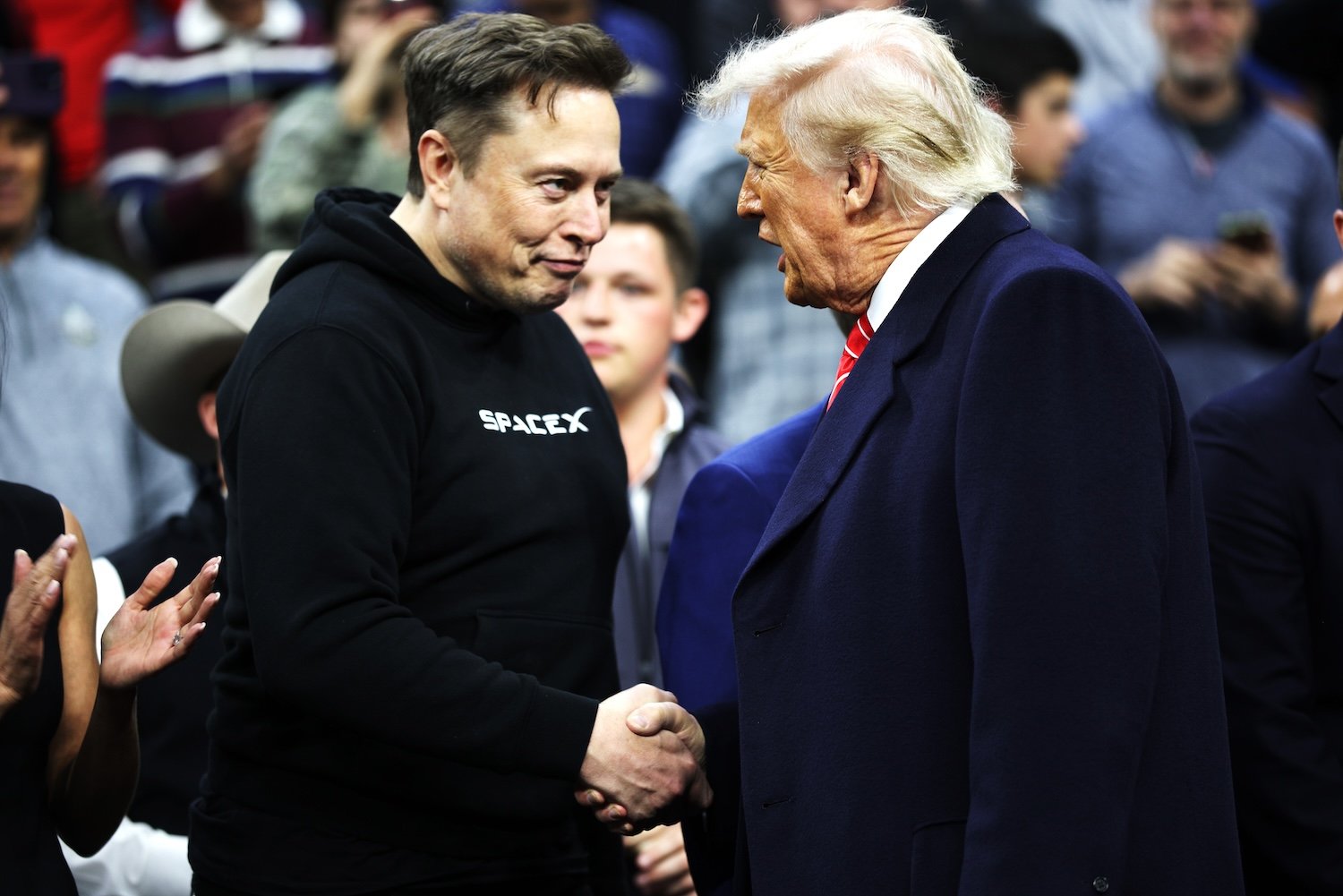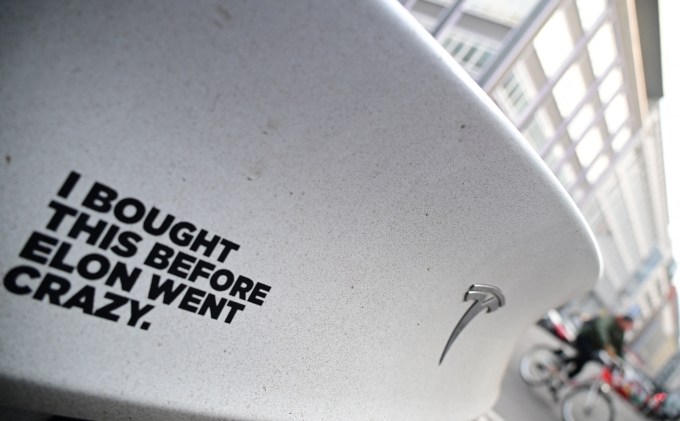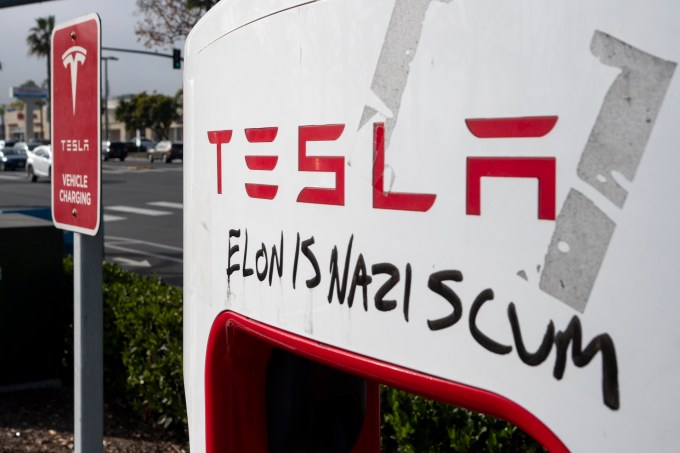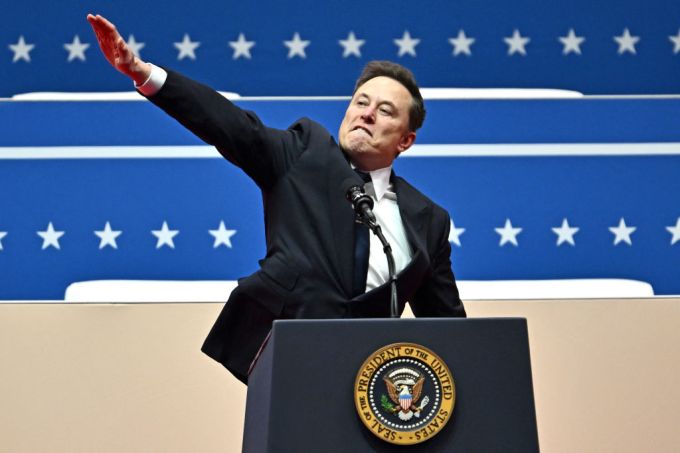

A federal judge ruled on Thursday that a lawsuit attempting to stop the Department of Government Efficiency from obtaining records on millions of Americans may proceed.
In conjunction with privacy watchdog the Electronic Frontier Foundation and two labor unions, more than 100 current and former federal employees sued DOGE, the U.S. Office of Personnel Management (OPM), and Elon Musk in February.
The government filed a motion to dismiss, but on Thursday the judge denied that motion.
The suit seeks to block OPM from disclosing records to DOGE as well as agents of DOGE. It also wants any information already shared to be returned. This ruling doesn’t mean the lawsuit itself will result in victory for the plaintiffs, but it does allow them to carry on.
Keep reading the article on Tech Crunch

The CDC is set to cut a third of its contracts spending within the next two weeks—the latest bit of dismantling orchestrated by the Trump administration.
Elon Musk has long been credited with turning Tesla into a beacon of innovation, the visionary who pushed the world into an era of electrification. But his slide into politics – specifically his alignment with President Trump and activities within the federal government – has dragged Tesla into uncertainty.
For many would-be Tesla buyers, the brand has lost its progressive luster. And while Musk has long been the face of Tesla, that link has taken a negative turn as the billionaire oversees mass layoffs and the elimination of federal programs via the Department of Government Efficiency.
Tesla’s disappointing first-quarter deliveries demonstrate just how much the brand has fallen out of favor. The company reported 336,681 deliveries in the first three months of 2025, down from 495,570 in Q4 2024 and 386,810 in the first quarter of last year. That’s off the back of an unimpressive 2024, which saw fewer deliveries than the year prior amid production delays and increased EV competition.
For many, Musk’s political activities have turned Tesla into a symbolic pariah. Tesla trade-ins have hit record highs, while sales in Europe have dropped. Foreign leaders are calling for boycotts and the automaker’s stock price has lost about half its value since December. All the while, protesters continue to assemble outside Tesla showrooms, dealerships, and even charging stations in an effort to accelerate the automaker’s brand devaluation and with it, they hope, Musk’s wealth.
“They have a certain significant public image problem that’s really something we haven’t seen before in this industry,” Sean Tucker, lead editor at Kelley Blue Book, told TechCrunch.
Even one of Tesla’s most unwavering bulls, Dan Ives, has begged Musk to focus less on politics and more on his business “or else unfortunately darker times are ahead for Tesla.”
To combat the effect this might have on Tesla, Musk has and likely will continue to lean on his sales pitch that Tesla isn’t an automaker, it’s an AI company, one that will someday commercialize autonomous vehicles and humanoid robots.
The question now is whether or not the Tesla brand can recover.
Below are the moments, which TechCrunch will continue to update, that are shaping perception of the Tesla brand and may have a lasting effect on its future.

While recent studies found that Musk’s political leanings have lost him customers in what has historically been Tesla’s base – Democrats – the shift has garnered him street cred with Republicans. One study from researchers at Northeastern University, Columbia University, and the University of Iowa found that Republicans’s likelihood to purchase a Tesla moved up from 7% before Musk’s Trump endorsement to 10.2% after.
That sentiment might only increase amidst Trump’s reciprocal endorsement of Musk and Tesla, including his free commercial at the White House on March 11.

At an impromptu, glitchy, live-streamed Tesla all-hands presentation on the evening of March 20, Musk told his employees and investors to “hang onto [their] stock” despite it feeling “like Armageddon.”
“It’s very difficult for people in the stock market, especially those that look in the rearview mirror, which is most people, to imagine a future where suddenly a 10 million vehicle fleet has five to 10 times the usefulness,” Musk said, referring to the now-defunct claim that all existing Teslas have the hardware necessary to turn into fully self-driving cars with a mere software update.
He advised employees to tune out the noise and focus on building the Cybercab, which would be the new priority. The Cybercab is a two-seater robotaxi with no steering wheel or pedals. Current federal regulations don’t allow for the mass production of such vehicles because they don’t have human controls, but Musk has signaled an intent to amend those rules.
He noted that the Cybercab manufacturing process would be a feat of engineering, a “high-speed consumer electronics line” that “will move so fast that…it’ll be able to produce a car, ultimately, in less than five seconds.”
During the call, Musk also promised to produce about 5,000 Optimus robots this year, which he believes will be Tesla’s most valuable asset.
On the same day as the sudden all-hands, Tesla bull Dan Ives wrote in a note that Musk’s involvement in DOGE has led to a “brand tornado crisis moment for Musk and Tesla.”
“If you agree or disagree with DOGE it misses the point that by Musk spending 110% of his time with DOGE (and not as Tesla CEO) since President Trump got back into the White House this has essentially turned Tesla into a political symbol…. and this is a bad thing,” Ives wrote.

Tesla showrooms, charging stations, facilities, and even privately owned vehicles have been hit with attacks. In some cases, the damage is minimal – some spray paint and a keyed car. In others, violence has ensued. Dealerships have been hit with bullets and Molotov cocktails, and charging stations have been set on fire.
Musk has responded by questioning why anyone would want to hurt Tesla.
Trump’s response has been more pointed. He has declared that any acts of violence – which could include spray-painting – would be treated by the federal government as domestic terrorism.
“I look forward to watching the sick terrorist thugs get 20-year jail sentences for what they are doing to Elon Musk and Tesla. Perhaps they could serve them in the prisons of El Salvador, which have become so recently famous for such lovely conditions!” Trump said on his social media platform, Truth Social.
As of the time of this writing, the Department of Justice has brought charges against three individuals who are allegedly responsible for violent destruction of Tesla properties.

Peaceful protests have also erupted across the country as part of the so-called Tesla Takedown movement.
The movement’s goal is to hit Musk where it hurts – his wallet, and the source of his wealth and power. Protesters have been showing up at Tesla dealerships and showrooms to try to discourage people from buying Tesla cars. They also aim to encourage Tesla owners to trade in their vehicles and Tesla stockholders to sell their shares.
Despite these protests being peaceful, we’re beginning to see the start of violent counter-protests – like the Florida man who drove his SUV into a crowd of protestors outside a Palm Beach Tesla dealership in March.
Thousands of people joined in Tesla Takedown protests the last weekend in March at showrooms across the country. The crowds drew small numbers of counter-protests in some regions that Wired reports were peopled mainly by MAGA supporters. Among them were far-right extremists, including members of the Proud Boys and armed militias.

While speaking at a rally celebrating Trump’s inauguration in January, Musk did what many have perceived to be not one, but two, Nazi salutes.
The damage has only been amplified amidst Musk’s vocal support for the far-right German political party AfD, as well as his history of sharing anti-semitic posts.
Shortly after the salute incident, activists projected an image of Musk doing the salute, along with the word “Heil,” onto Tesla’s Berlin gigafactory.
A recent survey of 100,000 Germans found 94% would never purchase a Tesla, and sales data backs that up.
Germany is the home of one of Tesla’s gigafactories and traditionally one of the automaker’s largest markets. But in February 2025, Tesla sales in the country were down 76% to just 1,429 sales for the month, compared with 6,038 in February 2024.
Tesla’s sales have slumped at a similarly aggressive pace across Europe. In February, Tesla’s registrations across the continent fell 44% year-over-year, following a decline of 45% in January.
One of Tesla’s biggest competitors, China’s BYD, has been touting significant breakthroughs in charging. The automaker said this week that its new cars can be charged in five minutes, which would give it a huge competitive edge over Tesla and indeed any other EV maker.
China is one of Tesla’s largest markets, but BYD is continuing to bully the automaker on its home turf. BYD recently unveiled its “God’s Eye” advanced driver assistance system – akin to Tesla’s Autopilot and FSD – that will be installed at no additional cost on its entire EV lineup, including its ultra-cheap $9,600 Seagull hatchback.
BYD continues to impress consumers with its high-tech range of EVs and hybrids and has once again surpassed Tesla on revenue. In 2024, BYD reported $107 billion in revenue compared to Tesla’s $97.7 billion.

Tesla has languished with an aging lineup for years. The Cybertruck was meant to be the automaker’s next big bet that would prove it’s still capable of delivering innovative new models. And indeed, the truck has been popular among American buyers.
Still, Tesla has issued eight recalls on the Cybertruck since launching the vehicle in November 2023. Most recently, Tesla had to recall 46,000 Cybertrucks because of an exterior steel trim panel on the side of the windshield that looks like it was stuck on with super glue and can just peel off.
Keep reading the article on Tech Crunch